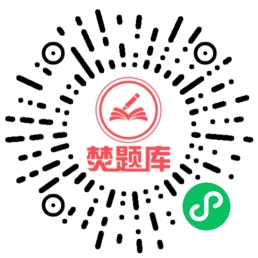
调研数据显示,近年来一些老字号或老品牌推出的创新产品,以及新锐、新兴的国产品牌产品,在90后和00后消费群体中均备受青睐,对“新国货”表示感兴趣的年轻人比例均占到70%以上。
Innovative1 products launched by old brands, as well as newly emerged national brands, are favored by Generation Y and Z and the proportion of young people interested in the "new national products" accounted for more than 70 percent of consumers, according to a report released by data service provider Aurora2.
扫描下方二维码,进入“每日一练”免费在线测试

调查发现,出生于80年代前的消费者喜欢购买和使用国货;从80年代到90年代出生的人群,在成长过程中明显受到欧美和日韩潮流文化的影响,因此80后和90后对于国货的购买偏好度相对较低。而伴随着国内消费市场的升级以及国民文化自信的增强,00后消费群体对于国货的购买偏好度有了较明显的提升。
While older generations prefer to buy and use national products, those born in the 80s and 90s are less likely to purchase them because they are more influenced by the trendy culture from Europe, America, Japan and Korea. Meanwhile, Generation Z is more willing to buy national products due to market upgrading and improved cultural confidence.
年轻人通常主动搜索产品,除此之外,还有较大比例的90后更容易在浏览电商平台的过程中无意被种草,而00后则相对更容易在KOL的影响下种草产品。
华北、华东、华南地区对国货偏好度低
调查显示,常住华北、华东、华南地区的消费者对国产品牌的购买偏好度相对其他地区低,相反,他们中有更大比例的人群经常购买进口商品。
Consumers living in North, East and South China have a lower preference for domestic brands than other regions, meaning that a larger proportion of people in these regions often buy and use imported brands in their daily lives.
此外,分城市等级来看,一线城市中日常消费以购买国产品牌为主的人群比例相对较低(占65.8%),而越是低线的城市,人群对于国产品牌的购买偏好度越高。
宠物用品最“出圈” 美妆护肤产品“仍需努力”
从专注年轻消费群体来看,他们日常使用的美妆护肤产品以国产品牌为主的人群比例相对较低,其次是数码电子产品、汽车。
For young consumers, the proportion of people's daily use of beauty and skincare products dominated by domestic brands is relatively3 low, followed by digital electronics and automobiles4.
年轻消费者更愿意购买宠物用品、饰品珠宝、家居百货等商品类目中的国产品牌。
As for pet supplies, accessories and jewelry5, household department stores and other commodity categories, young consumers have a relatively high preference for the purchase of domestic brands.
年轻人更看重质量 60后更注重“情怀”
尽管年轻消费者对国产品牌的消费偏好度较老一辈的消费者低,但年轻人对国货本身的产品价值感知程度更高:90后和00后对于国货的质量、功能和性价比的认可度明显高于其他代际。值得注意的是,60后中有更大比例的人群会为了“爱国情怀”而购买国货。
Generations Y and Z are significantly more likely than other generations to recognize the quality, functionality and cost effectiveness of national products. It is worth noting that a larger percentage of the post-60s will buy national products for "patriotic6 sentiment".
传统文化获新一代簇拥
随着汉服“破圈”掀起古风审美热潮,“服章之美”成为年轻人热切追捧的传统文化对象。
数据显示,融合了古风元素的产品最能提升年轻人的购买兴趣,其中90后中感兴趣的人群占比达54.6%,00后有73.3%。而古风元素在产品上的应用不仅包括“外在”方面,如产品外观造型或包装上的图案、图腾等,还可以体现在“内在”方面,如产品的原料应用、制作工艺等。
Products that incorporate traditional Chinese elements are most likely to increase young people's interest in purchasing, with 54.6 percent of the post-90s and 73.3 percent of the post-00s consumers interested in these products. Traditional Chinese elements are not only applied7 in product appearance or packaging patterns, but also can be reflected in the application of raw materials, production processes, etc.
拿“国潮”当噱头?年轻人不买单
调研也指出,国风元素在产品上的应用,不能只是一味地元素堆砌,而是要洞察消费者的需求和偏好,将设计元素结合产品特性进行有效融入,引起消费者的共鸣,从而提升他们对产品的购买兴趣。
当代年轻人对于国风元素的喜爱不止停留于“视觉层面”,他们还追求“身临其境”的消费体验。因此,有越来越多年轻人喜欢打卡红色景点和文旅博物馆、购买文物修复盲盒、玩古风剧本杀、体验古风摄影等,国风元素加上沉浸式消费体验已然成为刺激年轻人消费的新驱动因素。
Apart from their love for traditional Chinese visuals, young people nowadays also enjoy consuming through experiencing on-hand buying. This is why more and more young people like to visit patriotic sites and cultural tourism museums, buy archaeological restoration puzzles, participate in scripted historical role-play games, experience ancient style photography, etc.
超六成的年轻消费者不愿意被一些强打“爱国”旗号但却没有实际行为的品牌,或者是利用“国潮”当营销噱头进行品牌溢价但缺乏品质的品牌“割韭菜”。相反,一些具有社会责任感但却低调的品牌,以及结合“国潮”标签来提升产品品质的品牌会提升年轻人的好感度。
此外,一些利用国外元素来包装自己的“伪洋牌”,或被外企收购的“伪国货”,也比较难获得年轻人的认同。
资料来源考试网校老师主讲教材精讲班课程,完整讲义下载进入个人中心>>

